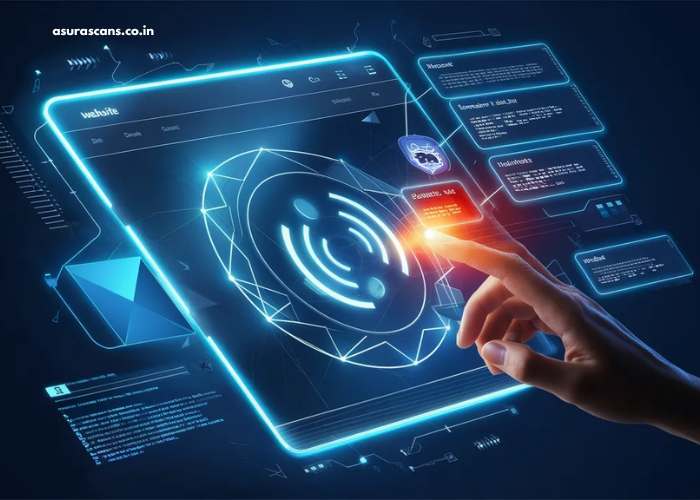In the digital age, technology continues to evolve at a rapid pace, and one of the most groundbreaking innovations is Artificial Intelligence (AI). AI-powered technology has emerged as a game-changer, offering smarter solutions across various industries and revolutionizing the way businesses, governments, and individuals operate. From healthcare to finance, education to entertainment, AI is transforming sectors, providing insights, automating tasks, and delivering results that were once unimaginable. In this article, we explore the vast potential of AI-powered technology and how it’s driving smarter solutions for the modern world.
What is AI-Powered Technology?
AI-powered technology refers to systems, applications, and platforms that utilize artificial intelligence to perform tasks that typically require human intelligence. This includes learning from data (machine learning), recognizing patterns, making decisions, and understanding natural language. Unlike traditional software programs, which follow predefined rules, AI can adapt and evolve over time by analyzing vast amounts of data and improving its performance through continuous learning.
The core components of AI-powered technology include machine learning, deep learning, natural language processing (NLP), and computer vision. These technologies enable machines to mimic human-like intelligence, such as understanding language, recognizing images, and making complex decisions.
How AI is Reshaping Industries with Smarter Solutions
AI is making significant strides in various sectors, providing solutions that improve efficiency, reduce costs, enhance productivity, and enable smarter decision-making. Here’s a look at some of the key industries where AI is driving transformation:
Healthcare: Personalized and Predictive Care
In healthcare, AI-powered technology is revolutionizing patient care by providing smarter solutions for diagnosis, treatment, and management. AI algorithms can analyze medical images with incredible accuracy, often identifying conditions like cancer, heart disease, and neurological disorders earlier than traditional methods. This ability to detect diseases in their early stages leads to better outcomes and reduced healthcare costs.
Moreover, AI-powered systems can predict patient conditions by analyzing data from electronic health records (EHRs), wearables, and other sources. This allows healthcare professionals to offer personalized treatment plans and proactively address potential health risks. With AI’s ability to analyze vast datasets, researchers are also discovering new drugs and therapies at an accelerated pace.
Finance: AI in Risk Management and Trading
AI-powered technology is also transforming the finance industry, particularly in the areas of risk management, fraud detection, and automated trading. Machine learning models can predict market trends, detect fraudulent activity, and assess risk more accurately than traditional methods. Financial institutions are using AI to provide personalized recommendations to customers, helping them make informed decisions about investments, savings, and loans.
In trading, AI algorithms can analyze massive amounts of market data in real-time to identify trading opportunities, optimize portfolios, and execute trades faster than human traders. This has led to the rise of algorithmic trading, which has become an integral part of modern financial markets.
Retail: AI-Powered Customer Experience and Inventory Management
In retail, AI-powered technology is improving both the customer experience and operational efficiency. E-commerce platforms use AI algorithms to recommend products to customers based on their browsing history, preferences, and past purchases, creating a more personalized shopping experience. AI chatbots and virtual assistants also provide real-time customer support, handling inquiries, processing orders, and solving issues without human intervention.
On the operational side, AI is optimizing inventory management by predicting demand patterns, improving supply chain efficiency, and reducing waste. AI systems can automatically restock products, manage pricing, and forecast sales trends, allowing retailers to maximize profits while minimizing costs.
Manufacturing: Automation and Predictive Maintenance
AI-powered technology is driving significant changes in the manufacturing industry, especially in the areas of automation and predictive maintenance. Smart factories equipped with AI-driven machines and robots are increasing production efficiency by automating repetitive tasks, improving precision, and reducing human error.
Predictive maintenance is another critical application of AI in manufacturing. By analyzing data from sensors and equipment, AI systems can predict when a machine is likely to fail and recommend maintenance before problems arise. This helps manufacturers reduce downtime, optimize maintenance schedules, and avoid costly repairs.
Transportation: Autonomous Vehicles and Smart Logistics
The transportation sector is undergoing a dramatic transformation, thanks to AI-powered technology. Autonomous vehicles, including self-driving cars and trucks, rely on AI to navigate roads, detect obstacles, and make decisions in real-time. These vehicles promise to reduce accidents, improve traffic flow, and enhance fuel efficiency, ultimately transforming the way goods and people are transported.
In logistics, AI is optimizing supply chains by predicting delivery routes, managing inventory, and automating warehousing operations. Smart logistics systems can track packages, manage fleet operations, and provide real-time updates, improving efficiency and reducing costs in the global supply chain.
Education: Personalized Learning and Virtual Assistants
AI is making waves in the education sector by offering smarter solutions for teaching and learning. Personalized learning is one of the most significant applications of AI in education. By analyzing students’ learning patterns, AI-powered platforms can create customized lessons, adapt content to individual needs, and provide real-time feedback, helping students learn at their own pace.
AI-powered virtual assistants are also becoming common in classrooms and online learning environments. These assistants can answer students’ questions, provide explanations, and assist teachers with administrative tasks, freeing up more time for personalized instruction.
Entertainment: Content Recommendation and Production
The entertainment industry is leveraging AI to enhance the user experience and streamline production processes. Streaming platforms like Netflix, Spotify, and YouTube use AI algorithms to recommend content based on users’ viewing or listening history. By analyzing preferences, ratings, and behaviors, AI helps platforms deliver highly personalized recommendations, keeping users engaged and satisfied.
On the production side, AI is being used to streamline the creation of movies, television shows, and music. AI tools assist with scriptwriting, video editing, and special effects, reducing production time and costs. Additionally, AI-powered content creation tools are enabling the generation of realistic images, voices, and animations, transforming the creative process.
The Benefits of AI-Powered Solutions
AI-powered technology is not just transforming industries; it is also offering a wide range of benefits that contribute to smarter solutions. These include:
Improved Efficiency and Automation
One of the primary benefits of AI is its ability to automate repetitive tasks and processes. By automating mundane and time-consuming tasks, AI allows human workers to focus on more complex and strategic activities. This improves productivity and efficiency across industries.
Enhanced Decision-Making
AI-powered solutions can process and analyze vast amounts of data in real-time, providing valuable insights that enable businesses and organizations to make better decisions. Whether it’s predicting market trends, optimizing supply chains, or diagnosing medical conditions, AI offers data-driven solutions that enhance decision-making.
Cost Reduction
AI can reduce costs by streamlining operations, improving resource allocation, and eliminating inefficiencies. By automating tasks, reducing human error, and optimizing processes, AI helps businesses save money while improving overall performance.
Personalization and Customer Satisfaction
AI enables businesses to offer personalized experiences to customers. By analyzing customer data, AI can recommend products, content, and services tailored to individual preferences, enhancing customer satisfaction and loyalty.
Scalability
AI-powered systems are highly scalable, meaning they can handle growing amounts of data and tasks without significant infrastructure changes. This makes AI a valuable tool for businesses looking to expand and adapt to changing market demands.
Challenges and Ethical Considerations
While AI offers numerous advantages, there are also challenges and ethical considerations that must be addressed. One of the primary concerns is the potential for job displacement as AI systems automate tasks previously performed by humans. Governments, businesses, and society must work together to ensure that workers are retrained and supported during this transition.
Another issue is data privacy and security. AI systems rely on vast amounts of data, and protecting that data from breaches and misuse is critical. Strict regulations and ethical guidelines must be put in place to ensure that AI is used responsibly and transparently.
The Future of AI-Powered Technology
The future of AI-powered technology is promising, with continuous advancements expected in machine learning, deep learning, and other AI fields. As AI becomes more sophisticated, we can expect even smarter solutions that will further enhance various industries. The key to unlocking the full potential of AI lies in responsible innovation, collaboration, and ensuring that the technology serves the greater good of society.
In conclusion, AI-powered technology is driving smarter solutions that are transforming industries, improving efficiency, and enhancing decision-making. From healthcare to finance, retail to transportation, AI is creating a smarter, more efficient world. As we continue to explore the possibilities of AI, we must also address its challenges and ethical considerations, ensuring that this powerful technology is used responsibly for the benefit of all.





